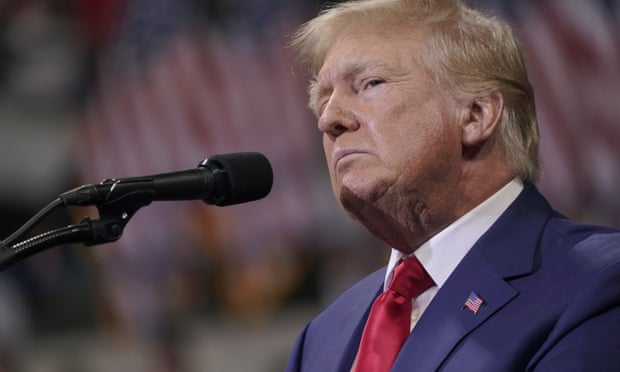Why did a judge grant Trump’s request for a ‘special master’?
“Critics say the decision to stop reviewing documents seized from Mar-a-Lago until a special master is appointed is ‘unprecedented’ and ‘insane’

Monday’s decision by a US federal judge to stop the investigation of Donald Trump’s seizure of classified documents until a “special master” reviews them has thrown the political and legal worlds into uproar – pitting those who believe the ex-president has special legal privileges against those who think he should be treated like any other citizen.
The procedural victory for Trump means the Department of Justice will have to press pause on its effort to determine whether the former president may have illegally run off with classified documents from the White House and kept them at his home in Mar-a-Lago.
Judge Aileen Cannon, a Trump appointee, agreed to his request that a special master, a kind of independent mediator, review the roughly 11,000 documents that the FBI discovered and seized when it searched Mar-a-Lago last month – some of which the FBI said were marked “classified”, “secret” and “top secret”.
Courts occasionally appoint special masters – typically retired judges or lawyers – to decide if materials seized by subpoenas or search warrants are protected by attorney-client privilege, and therefore exempt from use in court. Unusually, Cannon also authorized the special master in this case to look for documents protected by “executive privilege”.
Executive privilege is the controversial legal doctrine that US presidents, and their staffs, can refuse certain legal demands if they impair national security or the functions of the executive branch.
What makes the situation even more bizarre is that Trump, a former president, is invoking executive privilege against the current executive branch of the US government.
In 1974, when Watergate prosecutors subpoenaed tapes from the White House, Richard Nixon memorably argued that the tapes were protected by executive privilege. The supreme court ruled against him.
Cannon’s decision, however, has lawyers for the justice department frantically rushing to respond. She has given both the department and Trump’s legal team until Friday to agree on a list of potential special masters.
The justice department can appeal Cannon’s ruling, but the court of appeals that would probably hear the appeal is heavily dominated by Trump-appointed judges. Cannon herself was appointed to the federal bench by Trump in 2020 and is a member of the Federalist Society, a conservative legal organization.
In her 24-page ruling, she held that Trump faced “unquantifiable potential harm by way of improper disclosure of sensitive information to the public”.
Although the justice department has a “filter” team to review documents for privilege before criminal investigators or prosecutors see them, Cannon argued that the process was faulty. In two instances, she said, potentially privileged materials were seen by the prosecution team.
Some legal experts criticized Cannon’s order as abnormal and unduly protective of Trump. The decision is “an unprecedented intervention by a federal district judge into the middle of an ongoing federal criminal and national security investigation”, Stephen Vladeck, a law professor at the University of Texas, toldthe New York Times.
On Twitter, Neal Katyal, a professor of national security law at Georgetown and a former acting US solicitor general, described Cannon’s reasoning as “so bad it’s hard to know where to begin”.
The judge enjoined “the entire investigation because some of the material might be subject to executive privilege”, Katyal wrote.
Yet executive privilege “isn’t some post-presidential privilege that allows presidents to keep documents after they leave office. At most, it simply means these are executive documents that must be returned to the archives. It doesn’t in any way, shape, or form mean they can’t be used in a criminal prosecution about stolen docs.”
Katyal also criticized the idea that the court should be mindful of the risk of undue “reputational harm” to Trump. “That’s insane,” he wrote. Every criminal defendant experiences “reputational harm. Are we now going to have special masters in every [criminal] investigation?”
Trump’s former attorney general William Barr recently criticized Trump’s legal maneuvers in an interview with the New York Times. “I think it’s a crock of shit,” Barr said. “I don’t think a special master is called for.”
A separate review of the documents by the Office of the Director of National Intelligence, which is reviewing them to assess their national security implications, will continue unaffected.“
No comments:
Post a Comment